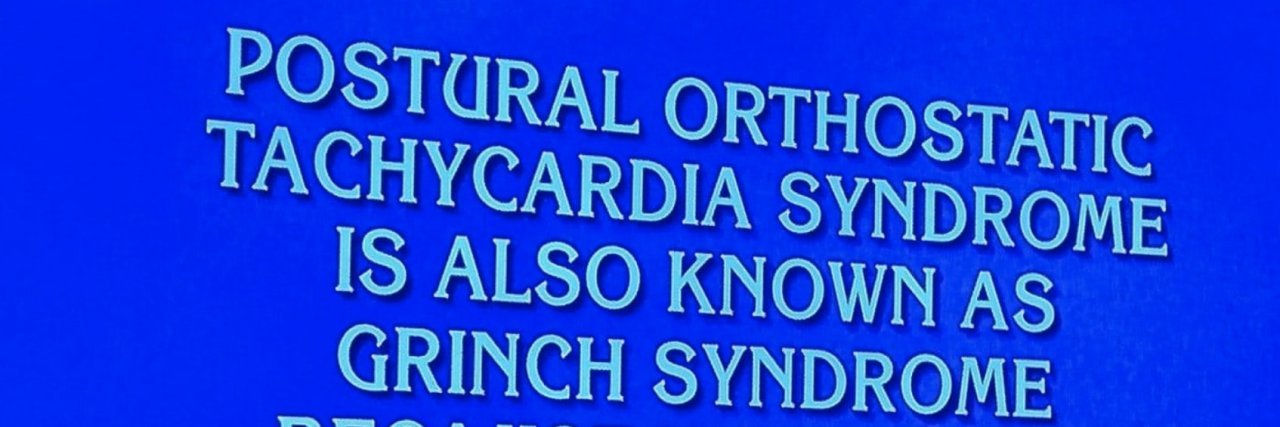'Jeopardy!' Apologizes After Using Inaccurate Clue for POTS
For people living chronic illnesses, it can be exciting to see awareness for your condition in the the media — unless the information is wrong and outdated.
On Monday’s episode of “Jeopardy!,” guest host Savannah Guthrie read that “postural orthostatic tachycardia syndrome is also known as Grinch syndrome because this organ is too small.” The answer was the heart, but this is not accurate, as this health condition is not associated with the size of the heart.
POTS, according to Dysautonomia International, is “is a form of orthostatic intolerance that is associated with the presence of excessive tachycardia and many other symptoms upon standing.” POTS affects between 1 million and 3 million Americans, and around 80 percent of patients with this condition are female. People who live with POTS may experience the following symptoms:
- Fatigue
- Headaches
- Lightheadedness
- Heart palpitations
- Exercise intolerance
- Nausea
- Diminished concentration
- Tremulousness
In a Tweet addressing this inaccurate clue, Dysautonomia International also highlighted the misogynistic undertones of the term “Grinch syndrome.” “Promoting outdated misogynistic terms to describe a debilitating autonomic nervous system disorder that impacts millions of Americans is not cool,” they wrote. “We request an apology on behalf of our community.”
Hey @Jeopardy no one with any credibility calls POTS "Grinch Syndrome." Promoting outdated misogynistic terms to describe a debilitating autonomic nervous system disorder that impacts millions of Americans is not cool. We request an apology on behalf of our community. Do better.
— Dysautonomia Intl. (@Dysautonomia) June 22, 2021
On Tuesday, “Jeopardy!” apologized for the offensive clue in a tweet. “After hearing from the community, we found we used an outdated and inaccurate term for this disorder, and we apologize,” they wrote. Some Twitter users who live with POTS did not find this to be enough and in response to “Jeopardy!’s” apology, they asked the popular game show to explain to their viewers why the clue was incorrect.
Yesterday’s program included a clue about postural orthostatic tachycardia syndrome (POTS). After hearing from the community, we found we used an outdated and inaccurate term for this disorder, and we apologize.
— Jeopardy! (@Jeopardy) June 22, 2021
People who live with POTS often face barriers to even get a diagnosis. A 2020 article published in the Cureus journal noted that POTS is often misdiagnosed as anxiety due to symptoms like heart palpitations. Some people with long haul COVID-19 may also be developing POTS, which has no cure.
Read stories about what it’s like to live with POTS on The Mighty.
Image via Twitter/Dysautonomia International

